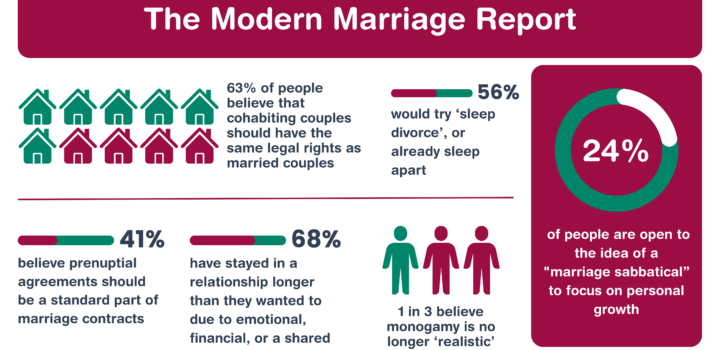Narcissists are common place in the popular culture, or so Hollywood would have you think. The label “narcissist” is often used to refer to people who are too full of themselves or who are extremely selfish. It would be easy to think that the number of those with Narcissistic Personality Disorder (“NPD”) is increasing, but that is not what psychological research shows. Narcissism, like many other personality traits, is best considered on a spectrum; with very few people being at the extreme end. NPD is very rare and affects an estimated 1% of the population.
According to the Diagnostic and Statistical Manuel of Mental Disorder (DSM-5), the essential features of a personality disorder are impairments in personality (self and interpersonal) functioning and the presence of pathological personality traits.
Diagnosing Narcissistic Personality Disorder (NPD)
To diagnose Narcissistic Personality Disorder the following criteria must be met:
Significant impairments in personality functioning manifested by impairments in self-functioning. This can be in the form of:
- Identity: excessive reference to others for self-definition and self-esteem regulation; exaggerated and self-appraisal may be inflated, deflated or fluctuate between extremes; and emotional regulation mirrors fluctuations in self-esteem; OR
- Self-Direction: goal-setting is based on gaining approval from others; personal standards are unreasonably high in order to see oneself as exceptional, or too low based on a sense of entitlement; and often unaware of own motivations.
There will also be impairments in interpersonal functioning – manifesting itself as one of the following:
- Empathy: Impaired ability to recognise or identify with the feelings and needs of others; excessively attuned to reactions of others, but only if perceived as relevant to self; and over-or underestimate of one’s own effect on others; OR
- Intimacy: Relationships will be largely superficial and exist to serve self-esteem regulation; empathy constrained by little genuine interest in others’ experiences and a predominance of a need for personal gain.
The pathological personality traits that are often seen are:
- Antagonism – characterised by grandiosity, feelings of entitlement, self-centeredness, condescending towards others and firmly holding a belief that they are better than others.
- Attention seeking – excessive attempts to attract and be the focus of others’ attention, including admiration seeking.
The impairments in personality functioning and the individual’s personality trait expression are usually relatively stable across time and situations.
The impairments must not be better understood as normal for that person’s developmental stage or socio-cultural environment.
The impairments must also not be solely due to the direct physiological effects of a substance e.g. drug abuse or a general medical condition e.g. head trauma.
NPD can only be diagnosed by a mental health professional and is often only assessed when a person’s traits impair their daily functioning.
As set out in ‘Psychology Today’, “It’s easy to slap the “narcissist” label on someone who spends a bit too much time talking about her career or who never seems to doubt himself, but narcissism is more complicated than it may seem: It’s not a surplus of self-esteem, but more accurately encompasses a hunger for appreciation or admiration, a sense of specialness and a desire to be the centre of attention, and an expectation of special treatment reflecting perceived higher status”. We must therefore be careful to label people as “narcissists” without carefully considering the personality disorder criteria.
What is Narcissistic Abuse?
A number of a ‘narcissist’s’ coping mechanisms are abusive. The phrase ‘narcissistic abuse’ is often used to describe the coping mechanisms / behaviours displayed by a ‘narcissist’. However, someone can be abusive without being a ‘narcissist’.
Signs of narcissistic abuse to look out for:
- Verbal abuse – belittling, bullying, shaming etc.
- Manipulation – usually appears harmless on the surface but leaves the person feeling demeaned or sensing a hostile intent.
- Emotional blackmail – threats, anger, warnings, intimidation or punishment
- Gaslighting – intentionally making your distrust your perceptions of reality
- Competition – always needing to be ‘on top’ even through unethical means
- Negative contrasting – unnecessarily making comparisons to negatively contrast you with the narcissist or other people
- Sabotage – disruptive to your endeavours or relationships for revenge or personal advantage
- Exploitation and objectification – taking advantage of you for personal satisfaction without regard to your needs or feeling.
- Lying – persistent deception to avoid responsibility or to achieve own needs.
- Withholding – money, affection or communication from you.
- Neglect – ignoring the needs of a child or putting that child in a dangerous situation
- Privacy invasion – ignoring your boundaries e.g. opening your post, looking through your phone or following you.
- Character assassination / slander – spreading malicious gossip or lies about you.
- Violence – destroying your property, blocking your movement etc.
- Financial abuse – controlling you via your access to money, theft, extortion or accruing debt in your name / selling your property.
- Isolation – isolating you from friends, family or outside support.
Leaving a narcissistic relationship
A number of these traits, especially financial abuse, is often seen in divorcing couples. It may be that these manifest themselves throughout proceedings or have done for a long period leading up the divorce.
If you’re in a relationship with a narcissist, it’s important to get external support to understand clearly what’s going on, to rebuild your self-esteem and confidence and to learn to communicate effectively and set boundaries.
NPD or narcissistic abuse must be carefully considered during the breakdown of a civil partnership or marriage. It is likely to impact on not only the ability to negotiate a financial settlement but also on child arrangements. For example, it is not uncommon to see one parent estranged from the children as a result of the other parents’ manipulation of the children.
Many people may feel that they are experiencing abuse at the hands of someone suffering from NPD. However, as explained this is a very rare personality disorder. That is not to say that a person can only suffer from narcissistic abuse at the hand of someone with a diagnosed personality disorder. A number of the traits are often seen amongst the general population (but on the lower end of the overall spectrum) and are likely to be heightened during a divorce scenario. Abuse is abuse and should not be justified by any means.
If you think your partner has NPD or you are suffering from any form of abuse in your relationship speak to one of our specialist domestic abuse solicitors who can help you.
















